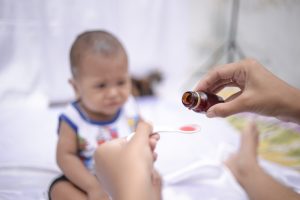The Human Papillomavirus (HPV) Vaccine is one of two vaccines that can cure cancers.
HPV Vaccine has proven to be able to prevent cervical cancer. Cervical cancer is the second most common type of cancer experienced by Filipino women, according to the World Health Organization (WHO). Cervical cancer affects around 8,000 Filipinas, with 4,000 dying as a result.
The Department of Health in the Philippines said that approximately 12 Filipinas die daily because of unnoticed early stages of cervical cancer and undiagnosed patients. This shows the importance of ensuring the safety of women from this disease, particularly amid the country’s concurrent healthcare issues.
Science Behind HPV Vaccine
Human papillomavirus infects humans and manifests as genital warts. Subsequently, in a worst-case scenario, it can develop into cancer such as cervical cancer. The HPV vaccine gives immunity against these diseases which mainly target the human papillomavirus that evades our body.
The Centers for Disease Control and Prevention (CDC) recommends regular HPV vaccination around 11 or 12. Ideally, vaccination should occur before an individual becomes sexually active.
Health officials recommend that individuals aged 15 – 26 receive three doses of the vaccine instead of the initially advised two, to be administered over six months. The vaccine proves effective only in scenarios preventing the virus from infecting the patient.
Accessible Prevention Services
Presently, initiatives are in progress to enhance the availability of the HPV vaccine in national immunisation schemes. The administration of the HPV vaccine is strongly advised by the DOH wherein different government sectors are given specific tasks to fulfill for a successful implementation. The objective is to guarantee that every Filipino – man and woman can obtain this potentially life-preserving vaccine. This is regardless of their financial situation and location.
Additionally, a petition has been initiated. It advocates for programs focused on screening, diagnosis, and HPV vaccination. This demonstrates a proactive strategy for addressing this widespread health concern. In addition, the Professional Regulation Commission has granted permission to the Philippine Pharmacist Association (PPhA) to incorporate training in essential skills for administering vaccines safely and effectively in their program. This will enable easier and more accessible administration of the vaccine.
Reminders from a Doctor
Dr. Sharon Leah R. Enghog, an obstetrics and gynecologic doctor at the Asian Hospital and Medical Center, emphasised the importance of the HPV vaccine and regular pap smear. She states, “I think every woman should have HPV vaccine as a primary prevention and regular pap smear as a secondary prevention. We usually advise giving HPV vaccine as early as 9 years old.”
She added, “Human papillomavirus is the most common viral infection of the reproductive tract that is why I believe that giving the HPC vaccine at an early age is the best way to eradicate the possibilities of cervical cancer.”
She also encouraged her fellow Filipinas, saying, “Every woman, especially the sexually active, who are of the reproductive age should have a regular gynecologic visit so they will be screened early and any issues will be addressed immediately.”
A Beacon of Hope
In our ongoing pursuit of a cervical cancer-free future, each person must contribute to these endeavours. The fight against cervical cancer is a collective endeavour. Therefore, it demands the full involvement of different sectors of the government to see a significant result. The HPV vaccine is a hope for every Filipino woman as a progress towards a healthy future.
More Like This…
UAE medical experts Unveil Roadmap for Elimination of Cervical Cancer












